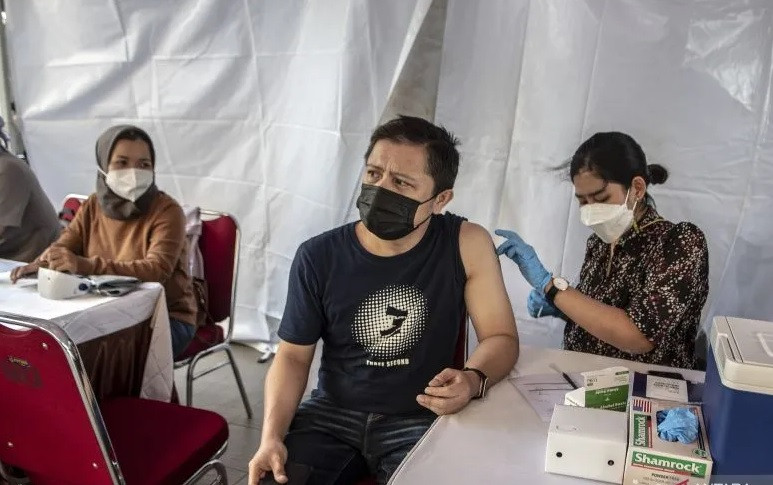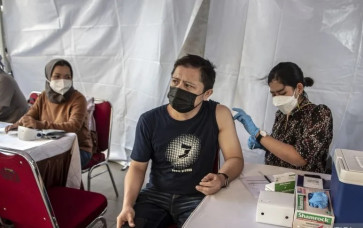Popular Reads
Top Results
Can't find what you're looking for?
View all search resultsPopular Reads
Top Results
Can't find what you're looking for?
View all search resultsProtecting people with weak immune system from COVID-19
New research has found that the effectiveness of a third vaccine dose is lower in patients with immunodeficiency disorders.
Change text size
Gift Premium Articles
to Anyone
D
isruptions in the immune system can lead to an increase in the direct burden of COVID-19, with studies showing the efficacy of vaccines against the disease appears to decline in individuals with low immunity. Experts, therefore, suggest people with a weakened immune system should have more options available to them to prevent SARS-CoV-2 infection.
The government’s rollout of the second COVID-19 booster dose for the elderly (aged 60 and older) is therefore good news. This measure is a necessary preventive measure against a new coronavirus infection wave driven by XBB, the highly contagious Omicron subvariant.
The policy is important also because of the potential rise in human mobility ahead of Christmas and the New Year, which may lead to a new virus spike. A second booster shot is currently limited to two priority groups – health workers and senior citizens.
A second booster dose is certainly essential because older adults remain at the highest risk of COVID-19 illness, hospitalization and death due to their weakened immune systems. Not only the elderly, other vulnerable groups also have inadequate immune responses (immunodeficient) to infectious diseases.
According to the United States' Centers for Disease Control and Prevention (CDC), the immunocompromised includes cancer patients who receive active treatment both for solid tumors and blood cancer, people who are undergoing organ transplants and consume immunosuppressant drugs, individuals with moderate or severe primary immunodeficiency, people with advanced HIV disease and patients who receive active treatment with high-dose corticosteroids or other medications that weaken the immune system.
While the government speeds up the second booster shots for the elderly, primary vaccinations and first booster doses remain high on the agenda, as in some areas, the coverage of primary vaccinations and first booster shots is still below 70 percent.
One question remains: is the booster dose strategy sufficient for the Omicron variant, especially in immunocompromised patients? Such a concern makes sense because new research finds out that the effectiveness of a third vaccine dose is lower in patients with immunodeficiency disorders. It means they may still be vulnerable to SARS-CoV-2 infections despite booster doses.


















